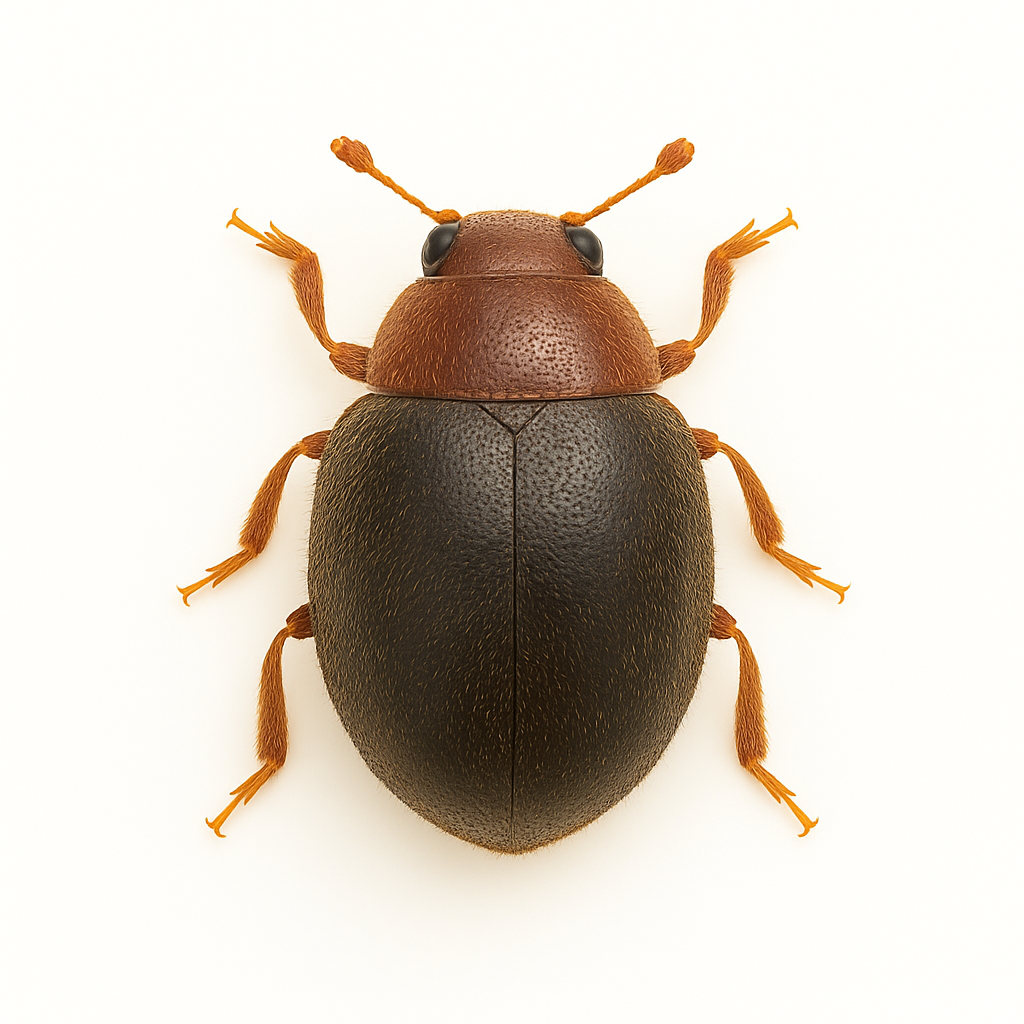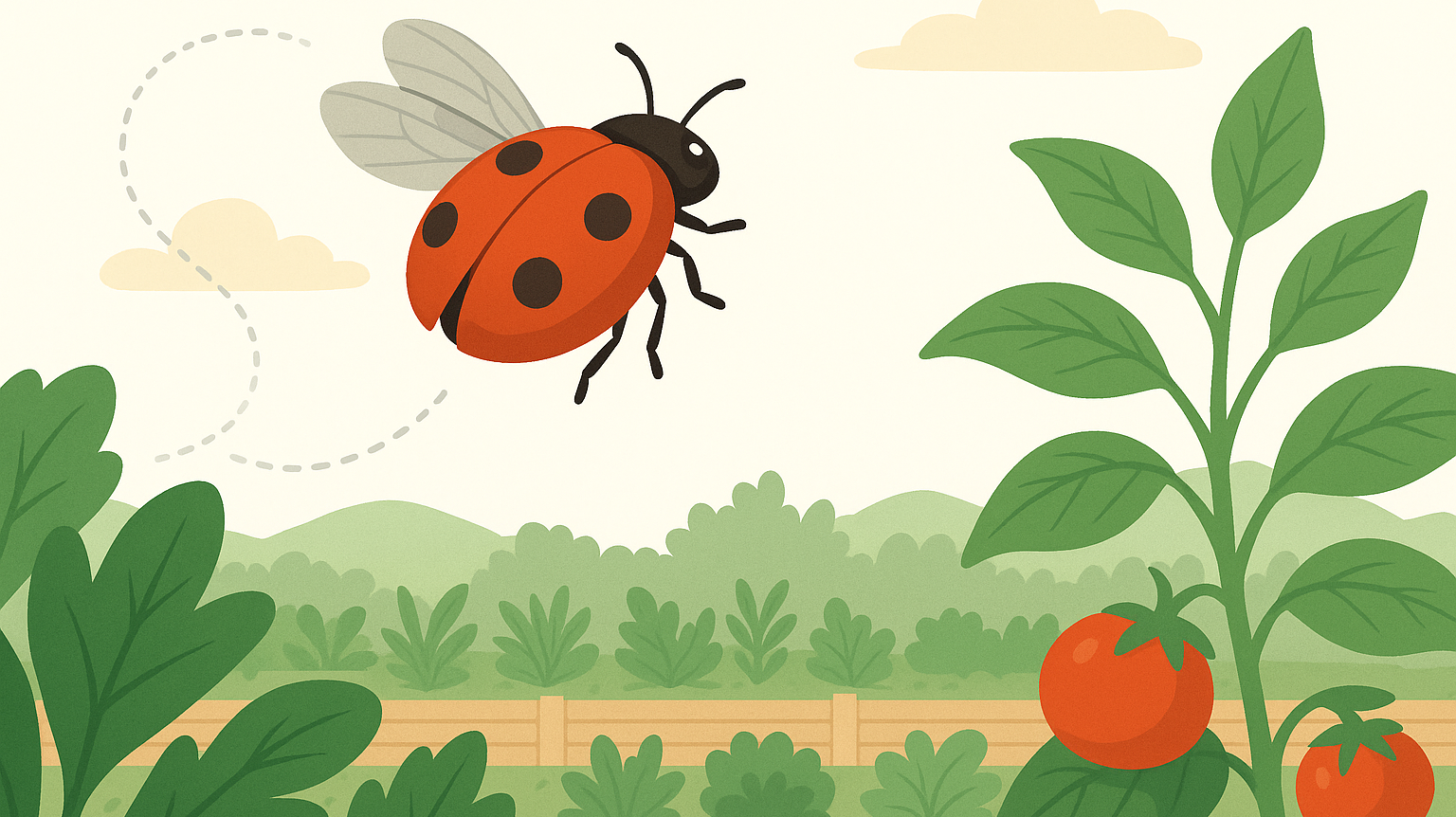Dealing With Scale Insects That Won’t Budge?
If you've tried neem, horticultural oil, or hand-wiping—and the problem keeps coming back—Lindorus lophanthae is your next move.
These scale-targeting lady beetles feed on every stage of scale insects: eggs, crawlers, and even adult armored scale hidden under wax. They’re one of the few biological control agents that reliably suppress both hard scale and soft scale, making them ideal for citrus, greenhouse crops, ornamentals, and mealybug-prone collections.
Lindorus lophanthae (Scale Predator – Live Adults)
Biological Treatment for Armored Scale, Soft Scale, and Mealybugs
Lindorus isn’t a generalist—it’s a scale specialist. Whether you’re dealing with California red scale, black scale, oleander scale, or mealybugs tucked into nodes and leaf joints, Lindorus will find them, feed, and reproduce for sustained control.
This predator is discreet, persistent, and effective even in cooler temperatures. You won’t see them often—but you will see results.
What It Controls
| Pest | Life Stages Targeted |
|---|---|
| Armored scale (e.g., California red scale, oleander scale) | Eggs, crawlers, adults |
| Soft scale (e.g., black scale, brown soft scale) | Eggs, nymphs, adults |
| Mealybugs | All stages |
| Other insect eggs | Opportunistic feeding |
Lindorus is one of the only predators that feeds through the armored shell, making it a top choice for scale insects that resist other biologicals.
Why Use Lindorus?
| Feature | Benefit |
|---|---|
| All-stage feeding | Targets every part of the pest lifecycle |
| Hard scale suppression | Reliable control of armored scale species |
| Cool-climate performance | Active in environments as low as 40°F |
| Long lifespan | Adults live up to 60 days and reproduce on-site |
| Low disruption | No sprays, no residue, no plant damage |
| Works in multiple environments | Greenhouses, citrus groves, tropicals, ornamentals |
Best For
-
Active armored scale infestations on citrus, ficus, or ornamentals
-
Soft scale outbreaks in greenhouses or indoor tropicals
-
Mealybug colonies around stems, nodes, or undersides
-
Growers wanting a long-term biological control without spraying
-
Commercial or home growers using Aphytis melinus or Cryptolaemus as part of an IPM program
Recommended Release Rates
| Beetles | Covers | Use Case |
|---|---|---|
| 100 | 200–400 sq ft | Houseplants, small grow areas |
| 500 | ~1,000 sq ft | Greenhouses, ornamental beds |
| 1,000+ | 2,000+ sq ft | Citrus groves, field crops, large infestations |
Rate guidelines:
-
Light infestations: 1 beetle per 5–10 sq ft
-
Heavy infestations or armored scale: 1 beetle per 1–2 sq ft
-
Use higher rates in cool, dry, or high-density plantings
Lifecycle Summary
-
Eggs hatch in ~7 days
-
Larvae feed for 2–3 weeks
-
Pupation lasts 3–5 days
-
Adults live ~2 months
-
Full cycle completes in ~30–35 days
Releases result in both immediate suppression and multi-week coverage through natural reproduction.
Compatibility
Lindorus works well with:
-
Aphytis melinus – citrus scale parasitoid
-
Cryptolaemus montrouzieri – mealybug specialist
-
Green lacewings – crawler-stage and egg suppression
Avoid combining with predatory mites—they don’t target scale, and may compete for space.
How to Apply
-
Release beetles directly onto scale-infested branches, stems, or foliage
-
Target dense canopies, bark crevices, or areas with visible crawler activity
-
Reapply every 4–6 weeks during high-pressure periods
-
Avoid contact with sprays before or after release
-
Lindorus is discreet—focus on results, not sightings
Shipping & Storage
-
Ships as live adult beetles with a live arrival guarantee
-
Use immediately upon arrival for best results
-
If needed, store for up to 24 hours at 50–60°F
-
Do not refrigerate with food or in excessively dry environments
FAQ
How does the Live Guarantee work?
We know how important it is for your mites to arrive healthy and ready to work. That’s why we offer a live arrival guarantee—with flexible options depending on when we hear from you:
- Let us know within 24 hours of delivery: We’ll gladly send a free replacement shipment.
- Let us know within 2–3 days of delivery: We can offer store credit to make things right.
- After 3 days from delivery: Because these are living organisms, we’re not able to offer replacements or credit beyond that window. By then, it’s harder to know what went wrong or whether shipping conditions were a factor.
We truly want your mites to succeed—so please open your package as soon as it arrives and check on them. If something doesn’t look right, don’t wait—reach out and we’ll take care of you.
Where are you located?
We have a number of different locations in NJ, Maine and Oregon. While we'd love to have you, we are not currently open to the public.
Can I call you?
We get it. Sometimes it's easier to talk to someone, and on a case by case basis we can try to figure it out. Unfortunately though, we're really not able to take calls—FGMN is a small nursery, and we're usually elbows-deep in plants or packing boxes. To make sure nothing gets missed (and everyone gets a timely reply), we keep all communication in writing.
Feel free to message us at info@fgmnnursery.com. We mostly respond quickly, but every once in awhile replies may take a day. Do follow-up if you don't hear in that time. We're human, we miss an email here or there.
Too Many Options?
We get it. Try our mite/insect matchmaking quiz and instantly get matched to the solutions you may need.
Our Live Delivery Guarantee
We stand behind every leaf and every mite. If your plant or predatory insects don’t arrive alive on the first delivery attempt, we’ll make it right.
Here’s what you need to know:
- Email us at info@fgmnnursery.com within 24 hours of delivery
- Include clear photos of the item and the shipping label
- Someone must be available to receive the package—plants and bugs don’t do well sitting in the sun, a mailbox, or the back of a delivery truck
For plants, we offer store credit if something goes wrong.
For predatory mites and beneficial insects, you’ll have the choice of a replacement shipment or store credit.
If you contact us after the 24-hour window, we may still be able to help—just know it’s handled case by case.
We pack with care, insulate when needed, and check the weather before shipping. But once it’s in transit, the fastest way to protect your order is to open it right away.
Mite Matters
The Hidden Weather That Shapes Plant and Predator Life
Invisible weather shapes every growing space. Warm air pools under lights, cool air settles near the floor, and in between, tiny predators decide where they’ll thrive. Learn how microclimates influence the balance between plants, pests, and the mites that keep them in check.
If Ladybugs Are Just Going to Fly Away, Why Use Them?
Most ladybugs don’t fly off out of spite — they leave when the environment isn’t right. Learn how temperature, humidity, and shelter affect whether they settle or scatter, and how to create the ideal setup that keeps them working where you need them most.
Where Did My Predatory Mites Go?
Released predatory mites but can’t see them anymore? Don’t panic. Their invisibility is exactly what makes them effective. Learn why they vanish, how they hunt pests out of sight, and why reapplying keeps your plants protected.









